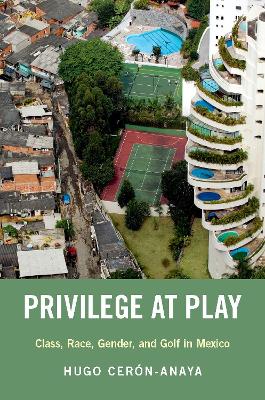Global and Comparative Ethnography
1 total work
While most research on inequality focuses on impoverished communities, it often ignores how powerful communities and elites monopolize resources at the top of the social hierarchy. In Privilege at Play, Hugo Ceron-Anaya offers an intersectional analysis of Mexican elites to examine the ways affluent groups perpetuate dynamics of domination and subordination. Using ethnographic research conducted inside three exclusive golf clubs and in-depth interviews with
upper-middle and upper-class golfers, as well as working-class employees, Ceron-Anaya focuses on the class, racial, and gender dynamics that underpin privilege in contemporary Mexico. His detailed analysis of social life and the organization of physical space further considers how the legacy of imperialism
continues to determine practices of exclusion and how social hierarchies are subtlety reproduced through distinctions such as fashion and humor, in addition to the traditional indicators of wealth and class. Adding another dimension to the complex nature of social exclusion, Privilege at Play shows how elite social relations and spaces allow for the resource hoarding and monopolization that helps create and maintain poverty.
upper-middle and upper-class golfers, as well as working-class employees, Ceron-Anaya focuses on the class, racial, and gender dynamics that underpin privilege in contemporary Mexico. His detailed analysis of social life and the organization of physical space further considers how the legacy of imperialism
continues to determine practices of exclusion and how social hierarchies are subtlety reproduced through distinctions such as fashion and humor, in addition to the traditional indicators of wealth and class. Adding another dimension to the complex nature of social exclusion, Privilege at Play shows how elite social relations and spaces allow for the resource hoarding and monopolization that helps create and maintain poverty.
